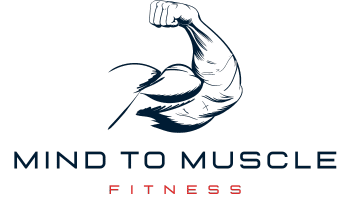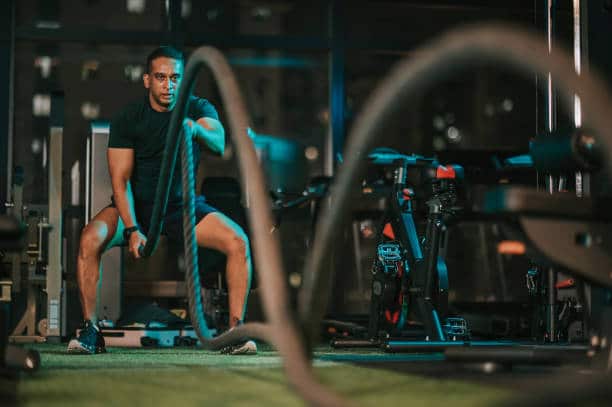
Calisthenics HIIT Workout: My Top Fat-Burning Tips!
Did you know that a 30-minute calisthenics HIIT workout can burn up to 400 calories? Combining high-intensity interval training with calisthenics can supercharge your fat-burning efforts.
In this article, I’ll share my top tips for crafting an effective calisthenics HIIT workout. Whether you’re new to high-intensity interval training or just looking to enhance your bodyweight routine, these tips are designed to fit perfectly into at-home workouts and any fitness regimen.
What is a Calisthenics HIIT Workout?
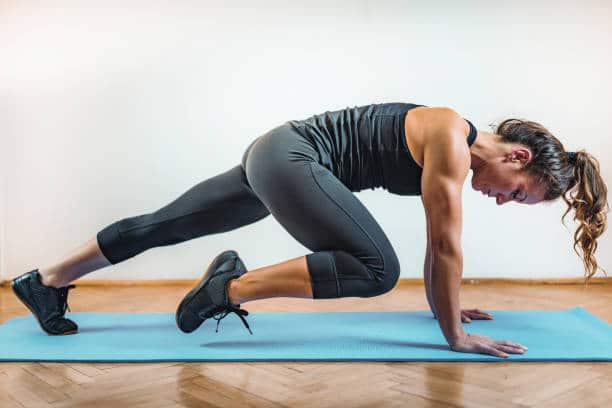
A calisthenics HIIT workout combines the principles of high-intensity interval training (HIIT) with bodyweight exercises, also known as calisthenics. This approach involves alternating between short bursts of intense activity and brief periods of rest or lower-intensity exercise.
In a calisthenics HIIT workout, you’ll perform bodyweight exercises like push-ups, squats, and burpees at maximum effort for a set period, followed by a short rest. This cycle is repeated multiple times. The combination of HIIT and calisthenics maximizes calorie burn, improves cardiovascular fitness, and builds strength using minimal equipment. Ideal for those looking to boost their fat-burning and overall fitness, a calisthenics HIIT workout is both efficient and effective, making it perfect for quick, intense training sessions.
Definition of Calisthenics
Using one’s own body weight to increase strength and endurance is known as calisthenics. It consists of activities like pull-ups, squats, and push-ups that target developing muscular tone without the use of equipment at the gym. The emphasis is on functional fitness that improves physical performance in everyday situations.
How HIIT Works
A workout method called high-intensity interval training, or HIIT, mixes short bursts of strong anaerobic and aerobic exercise with short rest or low-intensity activity intervals. For HIIT fat burning, cardiovascular health, and muscle endurance, this approach is quite beneficial.
Combining Calisthenics and HIIT
An effective and potent exercise is produced when calisthenics and HIIT are combined. To maximize the effects of both anaerobic and aerobic training, you execute bodyweight exercises in short, intense intervals. For example, to keep your muscles challenged and your pulse rate high, try performing burpees, jumping jacks, and mountain climbers quickly one after the other.
There are several benefits. The HIIT fat-burning effect lasts beyond the workout, helping with weight management and muscle growth, in addition to burning a considerable amount of calories during the activity.
Benefits of Calisthenics HIIT Workouts
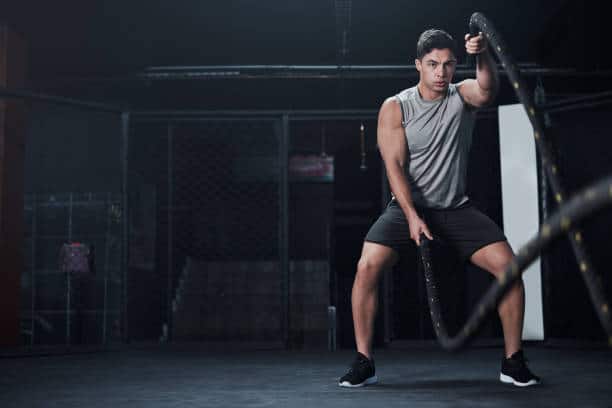
Calisthenics HIIT workouts offer a myriad of advantages that make them a standout way to achieve fitness goals. They not only help in shedding unwanted pounds but also boost overall health and body functionality.
Fat Loss and Weight Management
Good fat reduction and weight management are two important advantages of including calisthenics HIIT workouts in your regimen. With the help of the high-intensity intervals, your body may continue burning calories after the workout has ended. The afterburn effect is a phenomenon that is essential for maintaining weight over the long run.
Improved Cardiovascular Health
Regularly performing high-intensity physical activity significantly enhances cardiovascular health. With repeated use, the endurance gained by calisthenics high-intensity interval training guarantees improved heart and lung function. Increased endurance and a lower chance of heart-related illnesses are two benefits of improved cardiovascular health.
Increased Strength and Flexibility
Calisthenics high-intensity interval training (HIIT) is the best way to build entire body strength and flexibility. These exercises incorporate a variety of actions that develop functional strength and increase your body’s ability to handle physical obstacles in the real world. Frequent practice improves flexibility by teaching your body to move more dynamically and increases muscle mass.
My Top Calisthenics HIIT Workout Tips
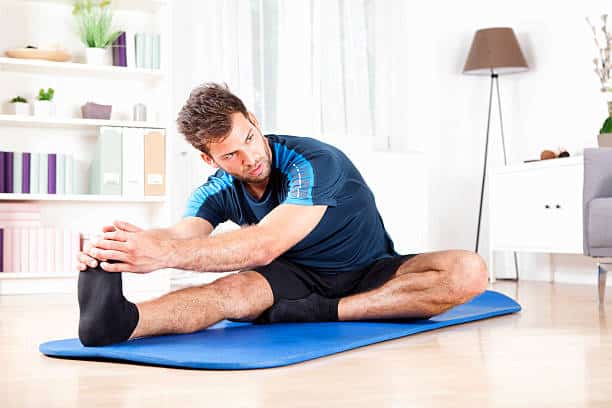
If done correctly, high-intensity interval training (HIIT) with calisthenics can be a stimulating and successful form of exercise. To help you make the most of your sessions, here are my top suggestions.
Start with a Warm-up
It is important to start with a dynamic stretching regimen before moving on to more rigorous activities. This gets your muscles moving and gets your body ready for the strenuous exercise that lies ahead. Effective warm-ups can improve your performance and dramatically lower your chance of injury.
Focus on Form
It is essential to do every exercise method correctly in order to maximize benefits and minimize injuries. Keep a watchful eye on your posture and motions. Maintaining proper form guarantees that the appropriate muscle groups are activated and that you get greater results.
Variety is Key
Adding variation to your regimen not only keeps things interesting but also works different muscle areas. This variety guarantees overall fitness improvement and keeps plateaus at bay. Changing up your routine helps you stay intellectually and physically engaged while also targeting different muscles.
Sample Calisthenics HIIT Workout Routine
I’ve put together a sample program to get you started with a calisthenics HIIT workout that is incredibly efficient. This program strikes a mix between dynamic warm-up activities, a circuit training format for the main workout, and vital cool-down and stretching routines for post-workout recovery.
Warm-Up Exercises
A proper warm-up session is crucial to prepare your body for the full-body workout. Here’s a routine to get your blood flowing and muscles activated:
- Jumping Jacks: 2 minutes
- High Knees: 1 minute
- Arm Circles: 1 minute
- Bodyweight Squats: 1 minute
Main Workout Sequence
This circuit training sequence targets all major muscle groups and is designed to keep the intensity high. Perform each exercise for 45 seconds, followed by a 15-second rest. Complete the circuit three times.
| Exercise | Duration |
|---|---|
| Push-Ups | 45 seconds |
| Pull-Ups | 45 seconds |
| Burpees | 45 seconds |
| Mountain Climbers | 45 seconds |
| Plank | 45 seconds |
Make sure to push yourself, but listen to your body. The goal of circuit training is to keep your heart rate up and burn fat while building muscle.
Cool Down and Stretching
Cooling down and stretching are just as important as the workout itself. These steps help in post-workout recovery and improve flexibility:
- Light Jog or Walk: 2 minutes
- Hamstring Stretch: 30 seconds each side
- Quad Stretch: 30 seconds each side
- Shoulder Stretch: 30 seconds on each side
Remember, consistency is key to seeing results. This full-body workout routine, followed by proper post-workout recovery, will help you achieve your fitness goals.
Common Mistakes to Avoid

It’s critical to steer clear of frequent mistakes while beginning an HIIT calisthenics workout since they can negatively affect both your safety and progress. Recognizing and avoiding these errors guarantees that you obtain the greatest benefit from your workouts and aids in the prevention of injuries.
Skipping Warm-Ups
It’s common practice to skip the warm-up, which increases the risk of strains and other ailments. Your body gets ready for a higher intensity workout during the warm-up. They enhance blood flow to your muscles, increasing their elasticity and reducing the likelihood of sprains. Always set out a few minutes at the beginning to prepare your muscles and raise your heart rate.
Overtraining
When you overtrain without taking enough breaks, you strain your body beyond its breaking point. This may result in weariness, a decline in performance, and an increased chance of injury. It’s critical to pay attention to your body. Adapt the intensity of your workout to your own feelings. Make sure the workouts in your fitness regimen are balanced and incorporate some low-intensity activities.
Ignoring Recovery Time
Ignoring recuperation time can prevent muscles from growing and healing, which is essential for ongoing progress. Your muscles can repair and strengthen themselves when you take the right breaks between workouts. This improves performance and is a major contributor to the avoidance of injuries. In order to maintain the best possible workout efficacy, make sure to account for rest and recuperation days.
Tracking Your Progress
Keeping a workout log is essential for reaching your fitness goals. Tracking your workouts helps you monitor progress and stay motivated. Here’s how to effectively track your progress:
1. Use a Fitness App: Apps like MyFitnessPal and Fitbit are excellent tools for logging exercises, tracking statistics, and setting goals. These apps provide a comprehensive overview of your fitness journey, helping you stay on track and motivated.
2. Maintain a Workout Journal: Writing down your exercises, reps, sets, and personal notes about how you felt during the workout adds a personal touch. This method offers a tangible reminder of your progress and dedication.
3. Wearable Technology: Smartwatches from brands like Apple and Garmin are fantastic for real-time feedback. They track your activity levels, heart rate, and other metrics, allowing you to adjust your workouts and consistently improve your performance.
By using these methods, you can effectively monitor your progress and stay committed to your fitness journey.
Fitbit: Tracks activity, sleep, and heart rate.
- MyFitnessPal: Logs meals and workouts.
- Garmin Watches: Provides detailed fitness metrics.
- Apple Watch: Monitors various health data.
| Tracking Method | Features |
|---|---|
| Fitness Apps | Record exercises, set goals, and monitor progress. |
| Journals | Document workouts, personal notes, and physical feedback. |
| Wearable Tech | Real-time feedback, activity levels, heart rate. |
Whatever method you choose, consistency is key. Regularly reviewing your workout log helps you set realistic fitness goals and spot trends in your performance improvement. Stay committed, and you’ll see the results you aim for!
Stay Motivated and Overcome Plateaus
We all encounter moments when our fitness journey feels stagnant. It’s normal to face workout challenges, but staying motivated is key. One of my favorite motivational tips is to set clear, achievable goals. Whether it’s mastering a new exercise or improving your plank duration, having specific targets keeps you focused and driven.
To avoid boredom and maintain excitement, try mixing up your routines. Experiment with new exercises or alter your workout sequences to reignite your enthusiasm. If you hit a plateau, consider increasing your workout intensity or exploring different exercises. Incorporating active recovery days is also beneficial, as they allow your muscles to heal and grow while keeping you engaged in your fitness routine.
Remember, your fitness journey isn’t just about quick fixes; it’s about making a long-term lifestyle change. Embrace the process and celebrate the small victories along the way. Progress may be gradual, but every step brings you closer to your goals. Keep pushing through the challenges, and you’ll eventually see the results you’ve been working so hard to achieve.
FAQ
What is a calisthenics HIIT workout?
A **calisthenics HIIT workout** merges bodyweight training with high-intensity interval training (HIIT). This approach involves performing exercises such as push-ups, squats, and burpees in short, intense bursts, followed by periods of lower-intensity recovery. The goal of this combination is to boost fat burning, build muscle, and improve cardiovascular health. By alternating between high-intensity work and brief rest periods, you can maximize the effectiveness of your workout and achieve significant fitness gains.
Can I do a calisthenics HIIT program at home?
Of course! The fact that calisthenics HIIT exercises require little equipment is one of its many wonderful features. These bodyweight exercises are a convenient choice for many because they can be done outside or in the comfort of your home.
How does a calisthenics HIIT workout help with fat loss?
Calisthenics HIIT workouts combine high-intensity aerobic and anaerobic exercises to increase your metabolic rate. This causes a phenomenon known as the “afterburn effect,” which enhances calorie burn both during and after exercise and aids in efficient fat reduction and weight management. This intense combination of exercises not only builds strength and endurance but also promotes better cardiovascular health and muscle tone. Many individuals who follow such routines may also experience the “whoosh effect in weight loss,” where the body appears to shed excess water and fat more noticeably after consistent effort. This can serve as a motivational boost, encouraging adherence to a fitness regimen for long-term health benefits.
What should I include in my warm-up before a calisthenics HIIT workout?
Dynamic stretches and exercises like bodyweight lunges, arm circles, and leg swings are essential components of a proper warm-up. During your HIIT session, these movements assist warm up your muscles, improve blood flow, and lower your chance of injury.
Why is focusing on form important in a calisthenics HIIT workout?
By keeping your form correct, you reduce your chance of injury and make sure you’re hitting the right muscles. Proper technique maximizes the advantages of every exercise, guaranteeing a safer and more effective workout.
How can I keep my calisthenics HIIT workouts engaging?
Exercises should be varied to stay interesting and avoid plateaus. Consider adding additional difficulties like resistance bands or time-based variants or varying the workouts in your regimen. Changing things up keeps your body and mind interested.
What are the benefits of combining calisthenics with HIIT?
A potent synergy is created when calisthenics and HIIT are combined, increasing fat-burning and improving muscle strength and flexibility. Bodyweight movements are used in calisthenics, which is great for functional strength, while high-intensity interval training (HIIT) optimizes calorie burn and cardiovascular benefits.
How long should a typical calisthenics HIIT workout last?
Depending on your goals and level of fitness, a typical calisthenics HIIT workout can run anywhere from 20 to 45 minutes. This covers the warm-up, the primary exercise sequence, and the cool-down periods.
What should I do for post-workout recovery after a calisthenics HIIT session?
Stretching and a cool-down should be a part of post-workout recovery to help with muscular stiffness and flexibility. To help with muscle repair and recovery, it’s also critical to drink enough of water and eat a balanced meal that includes both protein and carbs.
What common mistakes should I avoid in calisthenics HIIT workouts?
Typical errors include neglecting recuperation time, which is essential for muscle growth and regeneration, overtraining, which can result in burnout and strains, and skipping warm-ups, which can cause injuries. Observe your body’s cues and make sure you get enough recuperation in between workouts.
How can I track my progress with calisthenics HIIT workouts?
Workout logs, wearable devices, and fitness apps can all be used to monitor your progress. You can monitor your progress, stay inspired, and set reasonable objectives by keeping track of your workouts. Adapt your routine as necessary to maintain your development.
What are some tips to stay motivated and overcome plateaus in my fitness journey?
Changing up your exercise routine and establishing attainable goals are two ways to stay motivated. Break through workout plateaus by upping the ante, switching up the workouts, or adding active rest days. Instead of seeing your fitness journey as a short-term solution for long-term success, see it as a long-term lifestyle shift.
